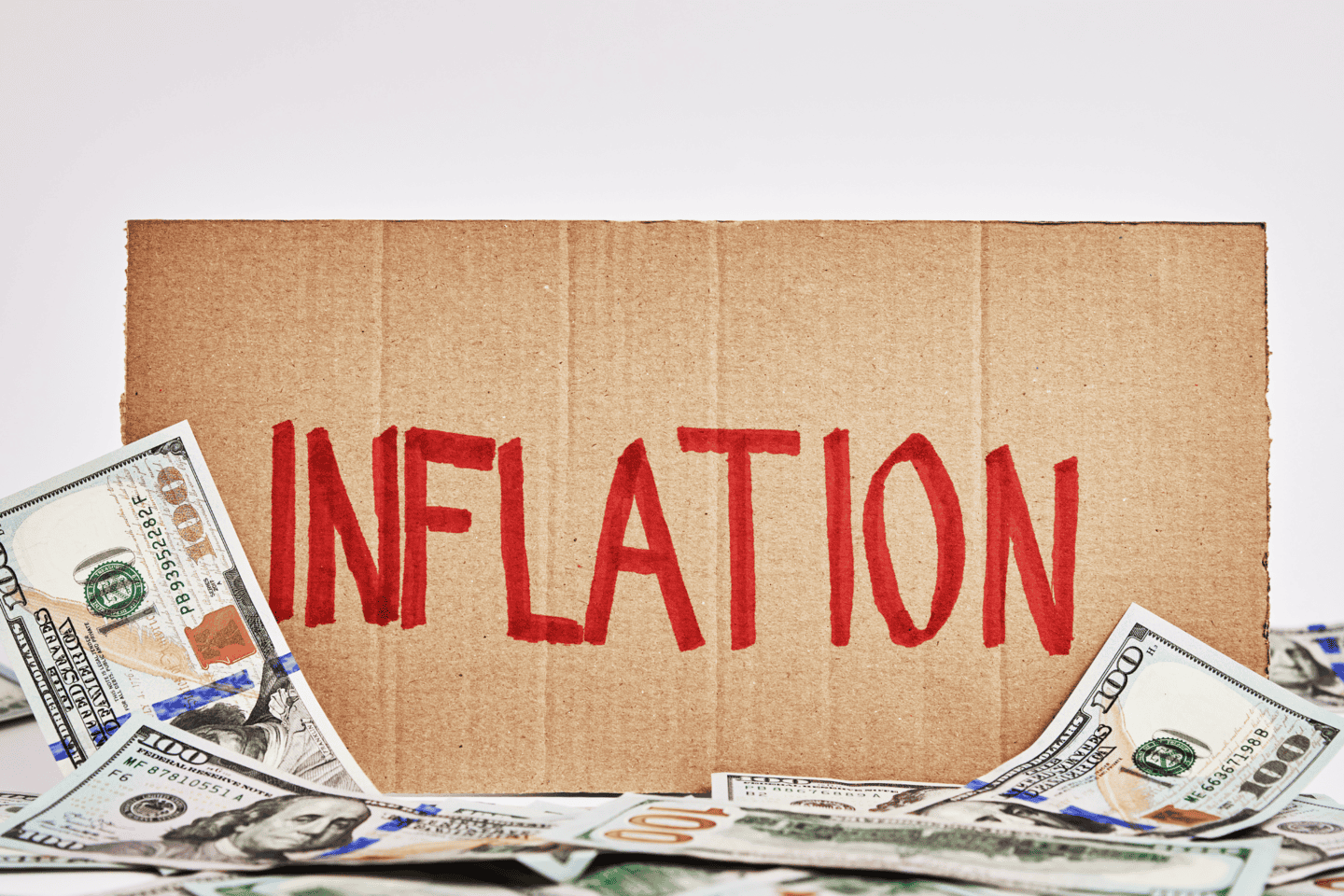Remember when you could fill your grocery cart without computing the total? When a night out didn’t feel like a financial burden? Those were simpler times. But lately, it feels like every dollar is stretched to its limit just to meet our needs. Why is that happening, it’s because of Inflation. Now, the question is Should I be worried about the impact of inflation?
The answer is probably YES. Inflation isn’t just some fancy term economists throw around on TV – If we’re not careful, it can seriously impact our finances and make us lose our hard-earned money.
Despite its tangible effects, many of us are caught off guard by inflation. You’ve probably felt this squeeze but might not have known what was causing it or how to protect yourself from it.
Well, fear not! In this blog, we’ll explore whether you should worry about inflation’s impact on real estate, examining its effects on everything from your daily spending habits to substantial investments like property. Stay tuned and Keep Reading!
Dive Deeper into Your Real Estate Potential: As the founder and CEO of eFunder, I bring my extensive experience in real estate and commercial mortgage brokering to enhance your investment strategy. Stay tuned for actionable insights, and don’t miss the exclusive offer at the end of this post, designed to revolutionize your lead generation approach.
Table Of Contents:
- What is Inflation?
- The Federal Reserve’s Role in Managing Inflation
- A Look At Current State Of Wage Growth And Inflation
- Why Should You Care About Inflation?
- Steps to Protect Your Real Estate Investments in an Inflationary Economy
- 1. Implementing Cost-Saving Measures
- 2. Diversify Your Portfolio
- 3. Adjust Rental Rates Strategically
- 4. Explore Long-Term Financing Options
- 5. Invest in Property Upgrades
- 6. Monitor Market Trends and Economic Indicators
- 7. Maintain Adequate Cash Reserves
- 8. Partner with Professional Property Management
- FAQs in Relation to Impact of inflation
- 1. What is inflation and how does it affect my finances?
- 2. Should I be worried about the impact of inflation on my investments?
- 3. How does the Federal Reserve manage inflation, and what role does it play in the economy?
- 4. What strategies can I use to protect my real estate investments against inflation?
- 5. How can I determine if I should be concerned about the current state of inflation and its potential impact on my financial goals?
- Conclusion
What is Inflation?
.png)
Let’s start with the basics: what exactly is inflation? inflation refers to the rate at which prices for goods and services are rising. This rise in commodity prices directly affects your purchasing power – how much you can buy with a set amount of money.
The Consumer Price Index (CPI) is a key measure used to track changes in price levels for goods and services typically purchased by households. It’s like an economic thermometer, indicating whether prices are heating up or cooling down.
You might be wondering what is the cause of price increases. Well, it’s often a result of too many dollars chasing after too few goods or services. This can happen when higher demand outpaces supply or when businesses face increased costs that they pass on to consumers through higher prices.
Recent reports suggest that rising prices have been taking a bigger toll on families’ budgets compared to previous years. Interestingly though, these spikes have mainly been limited to certain sectors such as used cars, flights, and hotels.
The Federal Reserve’s Role in Managing Inflation
Managing inflation is not easy task, but someone has to do it – enter the Federal Reserve.
The Fed plays a crucial role in adjusting monetary policy using tools like interest rates to keep our economy running smoothly while keeping inflation low but positive at around 2% per year – their target rate.
Recent news suggests that higher inflation might persist longer than initially expected, sparking discussions about wage growth and potential actions from Fed Chair Jerome Powell.
A Look At Current State Of Wage Growth And Inflation
During periods of high inflation, wages sometimes grow faster as companies need to offer higher pay to attract workers amidst tight labor markets; this phenomenon is known as the wage-price spiral.
.png)
What is Wage-Price Spiral?
The wage-price spiral is an economic activity characterized by a self-reinforcing cycle of increasing wages and prices, often observed during periods of high inflation.
It typically begins with wage increases driven by factors like labor demand or collective bargaining power, leading to higher consumer spending.
As demand higher, the production costs, prompting businesses to raise prices to maintain profit margins. This leads to inflation, which makes people ask for higher wages to deal with higher prices.
This feedback loop creates a spiral effect where wages and prices escalate in tandem, posing challenges for policymakers in controlling inflation and maintaining economic recovery and stability.
However, it’s worth to mention that wage growth isn’t always evenly distributed across the labor market recovery and may disproportionately benefit higher-income earners over low-wage workers.
Why Should You Care About Inflation?
Now you might be thinking: why should I care about all this economic jargon? Well, here’s why: understanding inflation is crucial because it directly affects your personal finances.
If your income doesn’t keep up with inflation, you may find yourself struggling as costs rise while real wages remain stagnant.
To gain a deeper understanding of the Federal Reserve’s target and its historical background, visit their official website. Explore their past actions and policies all in one place to get a comprehensive view.
The Relationship Between Inflation and Real Estate Investments:
Have you ever wondered how inflation impacts real estate investments? You’re not alone. Let’s dive into it:
How Inflation Affects Real Estate Investments
In simple terms, when prices rise due to inflation, so does the cost of everything else – including real estate.
This is because property values are often tied to replacement costs. As the cost of building materials and labor increases due to inflation, the value of existing properties also rises in response.
The Impact Of Rising Prices On Property Values
If you’re a homeowner or investor during times of high inflation, this could work in your favor.
Why? Because as property values increase alongside price levels, homeowners may see an appreciation in their home equity.
Interest Rates and Property Value
You might have heard that there’s a relationship between interest rates and property values too – especially during periods of high inflation.
Here’s why: Higher interest rates can make mortgages more expensive for buyers, reducing demand for homes and potentially leading to lower house prices.
Conversely, falling interest rates usually mean cheaper mortgages which can increase demand for homes and drive up house prices.
Research suggests that higher mortgage payments resulting from rising interest rates could potentially offset any gains from increased property values.
Steps to Protect Your Real Estate Investments in an Inflationary Economy
Inflationary pressures present unique challenges for real estate investors, but with proactive strategies, you can safeguard your investments and capitalize on emerging opportunities. Here are some steps to consider:
1. Implementing Cost-Saving Measures
Inflation can erode profit margins, making it essential to optimize costs without compromising quality.
Negotiate favorable terms with suppliers, contractors, and lenders to reduce expenses while maintaining property standards.
2. Diversify Your Portfolio
Spread your investments across different property types and locations to mitigate risk.
Diversification can help you weather market fluctuations and capitalize on growth opportunities in diverse sectors.
3. Adjust Rental Rates Strategically
Monitor market trends and adjust rental rates periodically to keep pace with inflation.
Strategic rental increases can help maintain cash flow and preserve the value of your investments.
4. Explore Long-Term Financing Options
Lock in favorable financing terms with long-term fixed-rate mortgages or explore alternative financing options to hedge against potential interest rate hikes. Secure financing that offers stability and predictability in uncertain economic conditions.
5. Invest in Property Upgrades
Enhance the value of your properties by investing in upgrades and renovations that increase tenant satisfaction and property appeal.
Energy-efficient improvements, modern amenities, and aesthetic enhancements can attract higher-quality tenants and justify rental adjustments.
6. Monitor Market Trends and Economic Indicators
Stay informed about economic indicators, such as inflation rates, interest rate forecasts, and market trends.
Regularly assess market conditions to identify emerging opportunities and adjust your investment strategy accordingly.
7. Maintain Adequate Cash Reserves
Build and maintain sufficient cash reserves to cover unexpected expenses and mitigate liquidity risks.
Having reserves on hand ensures you can address maintenance issues, vacancy periods, or market downturns without jeopardizing your investment portfolio.
8. Partner with Professional Property Management
Consider hiring professional property management services to streamline operations, optimize rental income, and address tenant needs promptly. Experienced property managers can navigate complex market dynamics and help maximize returns on your investments.
FAQs in Relation to Impact of inflation
1. What is inflation and how does it affect my finances?
Inflation is the increase in prices of goods and services over time, reducing the purchasing power of money. It affects your finances by making goods and services more expensive, potentially lowering your standard of living if your income doesn’t keep pace with rising prices.
2. Should I be worried about the impact of inflation on my investments?
While inflation can affect investments, it’s not necessarily a cause for worry. Real estate investments, for example, may benefit from inflation as property values can rise. However, it’s important to monitor investments and consider strategies to mitigate inflation’s effects.
3. How does the Federal Reserve manage inflation, and what role does it play in the economy?
The Federal Reserve manages inflation by adjusting monetary policy, primarily through controlling interest rates. Its goal is to maintain stable prices and promote maximum employment. Understanding the Fed’s target actions can provide insights into economic trends and potential impacts on investments.
4. What strategies can I use to protect my real estate investments against inflation?
To protect real estate investments from inflation, consider investing in properties with high rental yields, as rental income often rises with inflation. Implementing cost-saving measures and building strong tenant relationships can also help mitigate rising costs and maintain profitability.
5. How can I determine if I should be concerned about the current state of inflation and its potential impact on my financial goals?
Monitor economic indicators like the Consumer Price Index (CPI) and wage growth to assess inflation’s current state. If inflation is outpacing wage growth, it may erode your purchasing power, prompting adjustments to your financial strategies. Consulting a financial advisor for personalized advice can also be beneficial.
Conclusion
Inflation is a complex economic phenomenon with far-reaching effects.
However, armed with knowledge and strategic planning, real estate investors can navigate these challenges and even thrive in an inflationary economy.
By understanding the relationship between inflation and real estate investments and implementing appropriate strategies, investors can protect their assets and seize opportunities for growth.
Take the first step towards transforming your real estate dreams into reality with eFunder. Click here to schedule a personalized consultation and discover how we can help you secure the optimal financing for your next investment venture. Let’s build your success story together!
Additionally, don’t miss out on our exclusive offer – a 30-day free trial from Realeflow, specifically tailored for ambitious investors like you. Click here to seize this opportunity and elevate your investment strategies.
Affiliate Disclosure: Please be aware that the link above is an affiliate link. At no additional cost, I will earn a commission if you sign up for Realeflow using this link. I recommend this service because of its potential value to you as an investor, not because of the small commission I receive. Your support in using these links enables me to continue providing valuable content and helps grow our community. Thank you!





